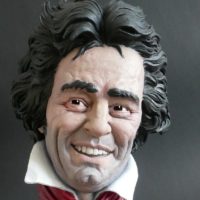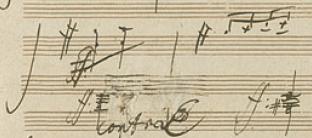My remarks at the beginning of the second of 13 concerts of Beethoven’s complete piano music played by New England Conservatory students during 2020. Let me tell you... I almost never do stand-up comedy on a Thursday night. Friday is better. Sometimes even Tuesday can be good. I mean not a Thursday though... tonight is a Thursday right — and you see what I mean. You can see how this is going, … [Read more...]
Continuity Conscious
In coaching a student in a master class, Alfred Brendel mentioned that very tapered phrase-endings may not allow for long-range musical continuity. If some notes in a cantabile phrase are much softer than the rest, those soft notes may seem to belong to another voice -- they drop out of the line, or suggest a subsidiary one. (In very soft tapering at the end of a melodic line, frequently I have the sense that pianists lose contact with the music, … [Read more...]
Up and Down
I turn on the radio in the car (where I usually listen to hiphop music) and hear a recording of Haydn's F-Minor Variations. I don't change the station. Within seconds, I'm thinking about the bright, separate envelope of every treble note in the recording. Lovely, but not really legato. Must be a German Steinway, I think. Whatever else pianists may be doing, in order to play piano music -- piano keys move vertically, down and then up again in … [Read more...]
Can’t get a word in
There is music that suffers in performance from conventionally good music-making. Mainstream classical playing seems to rely on clichés of "musicality" -- arching every phrase, breathing between groups, tracing all those lines up and then down again. Some pieces need different treatment. The first movement of Beethoven's Opus 101 is an extended, wordless run-on sentence. Theoretically, we may understand that no satisfying cadence in A major … [Read more...]
Mr. Brendel, thank you
My introduction of Alfred Brendel last night in Boston: In classical music, there are those who believe that thinking about music can compromise feeling -- compromise our emotional response to music. Alfred Brendel's example vividly shows us that such notions are foolish. Mr. Brendel scrutinizes the canonic texts of the piano repertory. He examines the behaviors of piano playing and musical life, and he's shown that deep reflection can yield … [Read more...]




